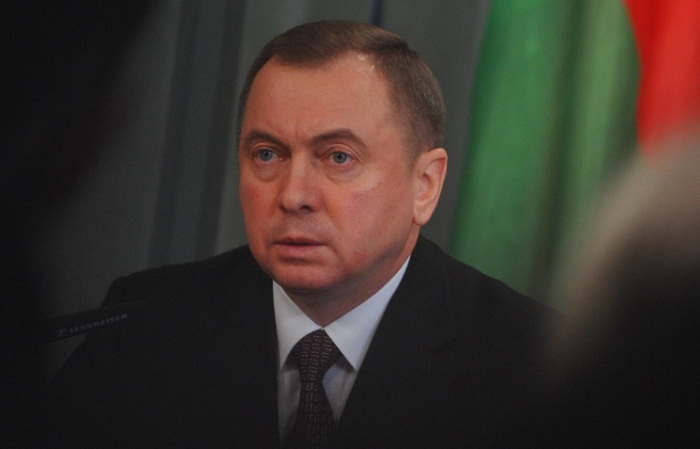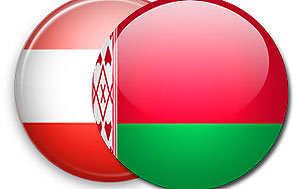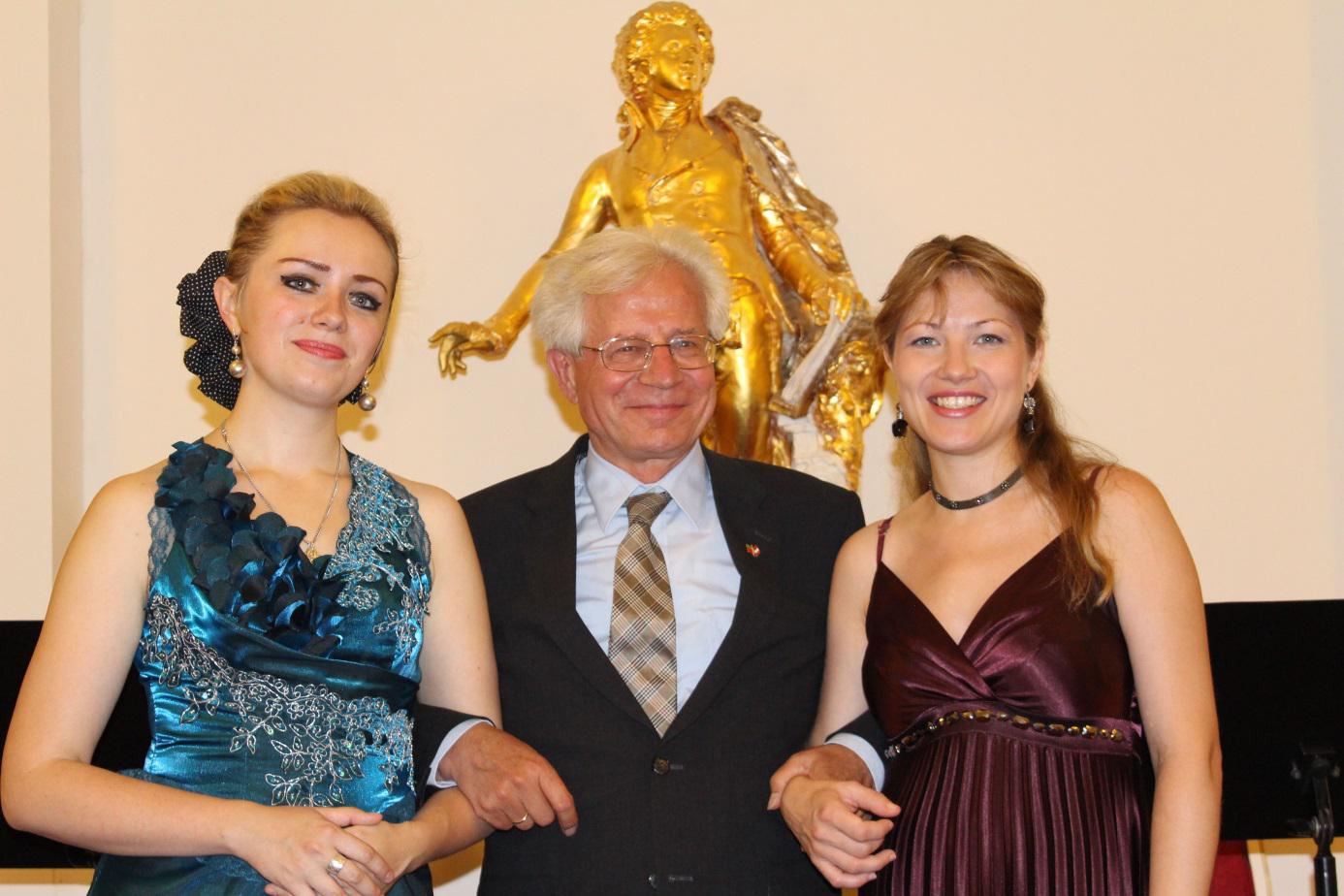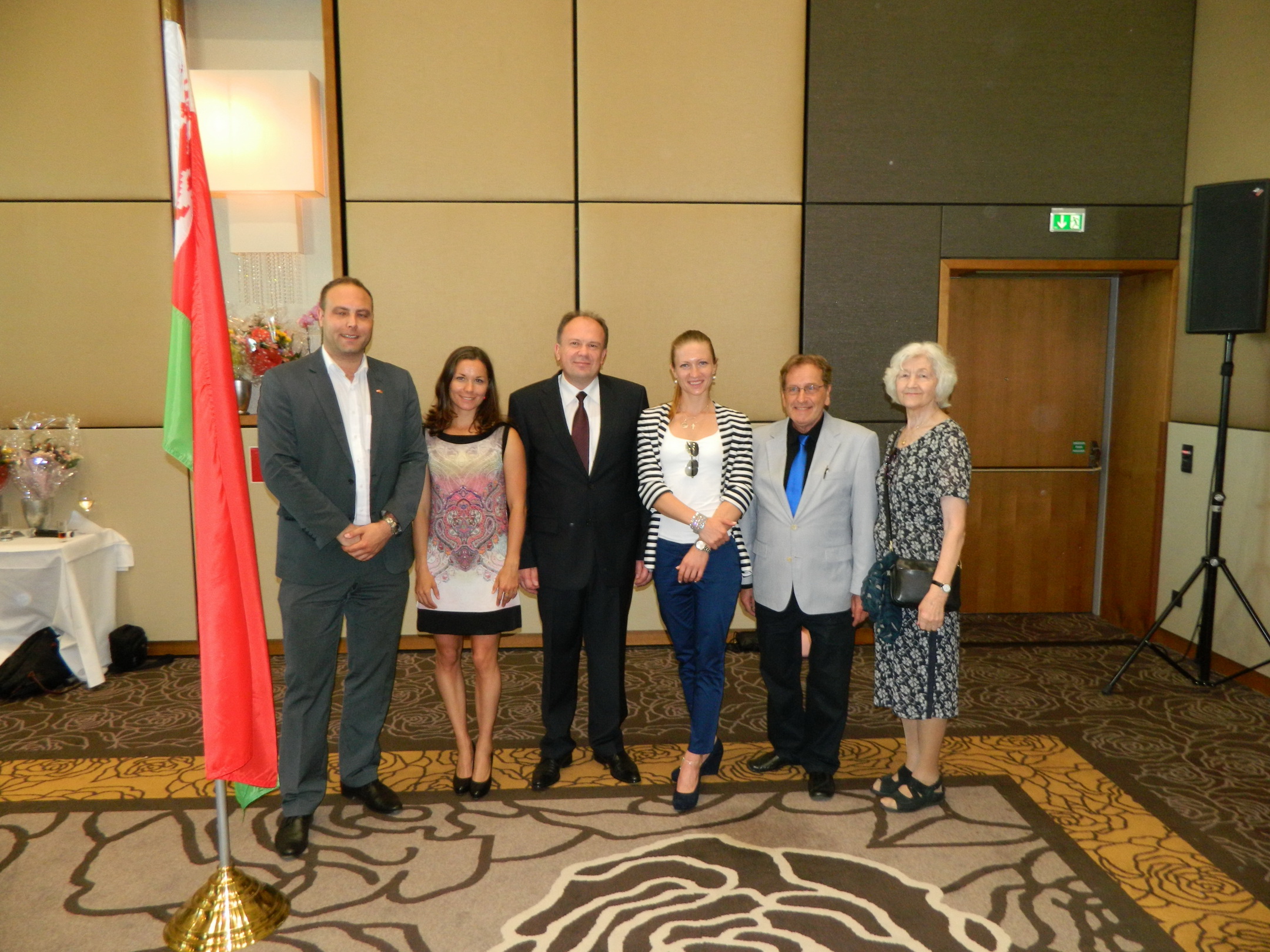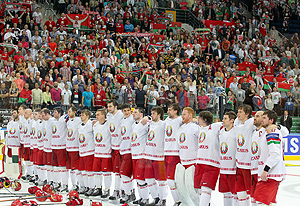Determinism in Human History
Vladimir Makei is Minister of Foreign Affairs of the Republic of Belarus (since August 2012).
Resume: The world has essentially entered a stage of development increasingly shaped by a cultural determinism that will weigh heavily on humanity in upcoming years and even decades. Today identity politics and specifically culture wars largely influence global development.
All periods in history have been typically marked by some kind of determinism. Even in early human societies geography largely determined the path of development. Indeed, as U.S evolutionary biologist Jared Diamond has convincingly demonstrated, geographic factors such as two rivers and an east-west expanse contributed to the early cultural and political unification of China, whereas Western Europe, with a similar area but a rugged terrain and no unifying rivers, was a place conducive to intense competition.
However, while geographic determinism accounted for how societies developed in the distant past, other factors influenced humanity’s subsequent evolution. For example, religion was a key dividing issue for much of the 16th and 17th centuries. The emergence of Protestantism in northern Europe in the early 16th century sparked religious wars on the continent that ostensibly ended only with the Peace of Westphalia in 1648.
Similarly, the class struggle was arguably the key fault line for most of the 19th century, a fight that was at the core of the Industrial Revolution and relentlessly pitted industrial workers against the bourgeoisie throughout much of Europe. The 20th century was marked overwhelmingly by ideological determinism, since the latter stood at the root of the geopolitical rivalry between two superpowers and their respective blocs.
What is the defining fault line in the world today? Many point to growing inequality fueled by globalization and the information revolution, two developments that have divided the world’s rich from the poor over the past few decades. Others claim the breakup of the Soviet Union in 1991 is behind the ongoing geopolitical realignment expected to ultimately result in a new balance of power. Still others argue the new developments are related to the growing challenge of climate change compounded by such factors as energy, water, and food shortages.
I content that the world has essentially entered a stage of development increasingly shaped by a cultural determinism that will weigh heavily on humanity in upcoming years and even decades. Today identity politics and specifically so-called culture wars largely influence global development.
IDENTITY POLITICS COMES TO THE FORE
What is identity politics? One can find an interesting and lengthy definition on Wikipedia, which essentially states that identity politics concern the interests and perspectives of self-identified social interest groups related, among other aspects, to race, class, religion, gender, ethnicity, ideology, nation, sexual orientation, and culture. While indeed a very broad definition, we can infer from it that identity politics is very much about social issues.
The British critical historian Eric Hobsbawm might have agreed with that inference. In his book The Age of Extreme: 1914-1991(1994), which is essentially a history of the 20th century full of extremes, he wrote: “Identity politics is an emotional reaction to the problems of the early 21st century.” Interestingly, Hobsbawm foresaw identity politics as a new fault line already in the early 1990s, when it was unclear what would replace the superpower rivalry.
French political scientist Dominique Moïsi argues in the same vein in The Geopolitics of Emotions (2010). For him, whereas the 20th century was about ideology, the 21st century will be very much about identity; specifically, about the particular emotions to which identity gives rise – fear, humiliation, and hope, which he associates with concrete behavioral patterns of certain countries. Moïsi believes that in order to achieve stability, the world will have to strike a balance between these three types of identity-based emotions.
Yet Samuel Huntington seemed shrewder than anyone else in showing how identity politics shaped global politics in the post-Cold War world. In his now much vaunted The Clash of Civilizations and the Remaking of World Order (1996), he wrote: “The years after the Cold War witnessed the beginning of dramatic changes in people’s identities and the symbols of those identities. Global politics began to be reconfigured along cultural lines.” In other words, according to Huntington, identity and culture emerged as the new fault lines in an impending clash of civilizations.
What was behind the rise of identity politics? And why did it come into the fore at the end of the Cold War and not earlier?
Identity politics did not come into salience earlier because, it seems, it was always muted by great power politics and policymakers in the past were exclusively preoccupied with the latter issue. The same is true of the Cold War era. The rigid inter-bloc discipline did not allow social issues to gain the upper hand over great power politics. Yet when the latter receded in importance with the end of the bipolar rivalry, identity politics came out of the shadows. As a result, the first half of the 1990s saw a series of UN-affiliated international conferences on a range of social issues, like those held in close succession in Vienna in 1993, in Cairo in 1994, in Copenhagen and Beijing in 1995.
Another reason for the rise of identity politics was that the decline of great power politics occurred at a time when the information revolution was increasingly gathering pace. Indeed, rapid communication and transportation enabled many new ideas to spread and win supporters across the globe much faster than it had been possible before.
However, what is troubling in the context of identity politics is that this phenomenon as a whole has been increasingly overshadowed by the prominence of its radical, libertarian wing, which effectively served to spark contemporary culture wars and set in motion cultural determinism.
THE RISE OF LIBERTARIANS AND CULTURE WARS
In short, culture wars are about opposite views on such cultural values as individualism, gender, and sexuality. These wars pit traditionalists and conservatives against so-called “progressives” and liberals. They first started in advanced Western countries, especially the United States, and have gradually spread to the rest of the world.
There are different views on when and how cultural wars began. I agree with American political and social scientist Charles Murray, who wrote in his Coming Apart: the State of White America, 1960-2010 that “November 23, 1963, became the symbolic first day of what would be known as the Sixties and of the cultural transformation that wound its course through the subsequent decades.” As we all know, U.S. President John F. Kennedy was assassinated on November 23, 1963. Murray argues that Kennedy was not inclined to push for radical change because of his temperament and beliefs; by contrast, his successor Lyndon B. Johnson was a master legislator. The change in administrations might indeed have been a proximate factor for the ensuing cultural transformation, but there must have been a deeper social force – or what is often called the ultimate factor – that brought about such a radical shift. What was it?
Many insightful thinkers assert that radical and significant social changes occur when societies have a disproportionately large number of young people. On the one hand, it is extremely difficult for any authority to employ so many young people at the same time, given that they overwhelmingly have low or no skills at all. On the other hand, adolescents in general are full of confused emotions, rebel against their parents and the authorities, and constantly question values and ethical constraints. In other words, an unengaged youth is a potential source of various kinds of trouble.
Murray argues that “no one understood in the early 1960s what a big difference it could make if one group of population was abnormally large.” The author refers to the “baby boomers” born in the U.S. in the decade following the end of World War II. By the mid-1960s, this generation had just emerged from its teenage years and stood poised to make an impact on U.S. society. As another American sociologist James Wilson wrote, as the “baby-boomers” reached adolescence in the 1960s, self-liberation returned with a vengeance.
Another factor at play in the early 1960s in the U.S. was the black freedom struggle that asserted the government’s responsibility to ensure equality not just for racial minorities, but also for women and sexual minorities. Also, in the wake of the black liberation movement in the 1960s, a powerful feminist movement emerged that was able to successfully advance the point that women’s rights and their role in society were in fact a political agenda.
Then, in the 1970s, as Robert O. Self writes in All in the Family, “lesbians and gay men, along with bisexual and transgender people began coming out in ever greater numbers, transforming the homophile movement into a richer, broader and a more visible national presence.” These gender identity groups – collectively labeled LGBT (lesbian, gay, bisexual, transgender) – became influential in local politics, especially in Los Angeles and San Francisco.
As Self contends, the gender-based social movements in the U.S. undermined the ideals of the traditional American breadwinner family and the heterosexual nation. This trend has been repeated in much of Europe since the 1960s.
If initially gender-identity groups in the West fought for negative liberty – that is, to be left alone – later they increasingly shifted their focus to fight for positive liberty; for instance, for acquiring rights guaranteed by the state (the right to abortion, same-sex marriage, etc.).
The ideas advanced by these identity groups came to be also known as the “counterculture.” The very term implies an attack on traditional culture. Robert Self contends that “unmoored from traditional hierarchies and institutions [in the U.S.] – the church, the family [traditional], sexual propriety, the market – the counterculture promised liberation and was never far from chaos.” He further argues that the counterculture sparked the rise of “breadwinner conservatism,” which vehemently opposed the former’s cultural values.
In the brilliant essay Why There Is a Culture War: Gramsci and Tocqueville in America (Policy Review, 2000), John Fonte of the Hudson Institute describes the ongoing culture war in the U.S. as a philosophical clash between the ideas of Alexis de Tocqueville and Antonio Gramsci. He associates contemporary American conservatives with de Tocqueville, a French historian who in his book Democracy in America written in the 1830s stressed such inherent American values as patriotism, religiosity, and the traditional family. By contrast, Fonte associates the libertarians with Italian political scholar Antonio Gramsci, known for his advocacy of the interests of marginalized groups in the 1920s and 1930s.
According to Fonte, Tocquevillians and Gramscians clash on almost everything that matters. The former believe that there are objective moral truths applicable to all people at all times. The latter maintain that moral truths are subjective and depend upon historical circumstances. A similar cultural divide has been drawn across all other Western societies.
TOWARDS A GLOBAL CULTURAL HOMOGENIZATION?
Although not yet complete in the West’s domestic context, the struggle between libertarians and traditionalists is increasingly moving onto the global stage. This is happening because Western countries are advancing a libertarian agenda into traditionally conservative societies. Essentially, we are now witnessing a replay of the culture wars that have reoccurred in the West since the 1960s. In more than half a century, the West failed to unequivocally resolve the cultural fight. Given this, how is this struggle likely to unfold in the global context?
First, do cultural differences really matter? Yes, they do and very much so. In The Future of Power (2011), American political scientist Joseph Nye seems to have captured the core of the debate by stating that “politics in our Information Age is not whose military wins, but whose story wins.” In other words, the current fight is very much about values. What is apparently at stake is whether societies become homogenized or remain diverse in terms of values.
In The End of History and the Last Man (1989), Francis Fukuyama contends that the Industrial Revolution and technology lead to the homogenization of societies regardless of their cultures. To support his point, Fukuyama asserts that science once was also associated with the West, but later became universal. Albert Gore thinks along those same lines and claims that with a tightly integrated global economy and a worldwide digital network, “we are witnessing the birth of the world’s first truly global civilization.”
Nonetheless, most non-Western societies do not accept this logic. The reason is that they overwhelmingly regard attempts at cultural homogenization as an imposition of foreign libertarian cultural values, which is essentially spiritual aggression and cultural imperialism. Traditionalists in non-Western societies argue that cultural imperialism is no less dangerous than traditional political imperialism associated with territorial conquests, because, like the latter, it also seeks to deprive a targeted nation of something that it owns; namely, its true “soul.”
The argument that the information revolution and technology lead to the homogenization of cultures and the establishment of a universal civilization is rather spurious. Their role, as many people believe, is more likely to be of a technical nature; that is, to enable people across the globe to learn quicker and more about other cultures. Hence, we should not ascribe a transformative functional role to the information revolution and technology when it comes to cultural values.
Viewed in this light, global culture wars are nothing more than an attempt by one party to present something that has relevance only to itself as a matter that should be applied universally. This approach is not novel; it is intrinsic in Western political tradition.
As Samuel Huntington wrote in The Clash of Civilizations, “the West is attempting and will continue to attempt to sustain its preeminent position and defend its interests by defining those interests as the interests of the ‘world community.’” This phrase has become a euphemism to provide global legitimacy to actions reflecting the interests of the U.S. and other Western powers.
What is likely to be the outcome of the ongoing culture wars? George Friedman argues that culture wars and the fight over the nature of the family will intensify in the 21st century, but they will ultimately be resolved in favor of the Western model. According to Friedman, radical shifts like those that have wracked Europe and the U.S., transforming the role of women and the structure of the family, will become a worldwide phenomenon.
This outcome will not result from the mere fact that the 21st century will mark the end of the population explosion. Friedman states that by 2050, advanced industrial countries will be losing population at a dramatic rate, while by 2100, even the most underdeveloped countries will have reached birthrates that will stabilize their populations. As underdeveloped societies industrialize, Friedman writes, women will have fewer children, because supporting a large family in an industrial economic society is suicide.
What follows from this logic is that the family transformation that has been underway for some time in Western societies and which sparked culture wars has been also relentlessly spreading to the rest of the world. The entire pattern of traditional life is apparently collapsing, and it appears impossible to reverse the trend. In short, humanity is culturally doomed to homogenization, because the cultural determinism that purportedly arises from the natural evolutionary progress of humanity already knows exactly what the future holds for upcoming generations.
DECONSTRUCTING CULTURAL DETERMINISM
Every type of determinism comes to an end after historical events and forces have deconstructed it. That is how humanity has always lived and no doubt how it will live in the future. With this in mind, let us take a closer look at how culture wars are interpreted and how most people perceive them. Several conceptions may be useful here.
The Theory of Hegemony
I believe that in our specific context Antonio Gramsci’s Theory of Hegemony is particularly helpful. This theory has been widely recognized as making an immense contribution to the field of international relations. As Canadian political scientist Robert W. Cox argues in his seminal article Gramsci: Hegemony and International Relations (1983), Gramsci’s hegemony was not what most people mean by it today; namely, one country or countries dominating another country. Rather, it is about the dominance of social forces.
Hegemony is first established in an internal context in a leading world power by a domestic class or group of people. This does not mean that a dominant class has to run a state or govern it. Rather, it exercises power and influence through society. It is recognized as dominant domestically by others, hence its agenda is fully reflected in key state institutions, like the church, educational institutions, the media, etc. According to Cox, that is how the bourgeoisie exercised hegemony in Western Europe during the Industrial Revolution.
What happens then, according to the Theory of Hegemony, is that a hegemonic domestic class in a leading state “goes out” in an effort to connect with similar social classes/groups in other countries both in the core and periphery countries. Together, they now begin pursuing similar interests globally.
Thus, hegemony at the international level is not merely an order among countries. It is also a complex international social relationship that connects social classes in different countries. According to Cox, world hegemony can be described as a social, economic, and political structure.
Therefore, if the world order is grounded in social relations, then a significant structural change in that order can likely be traced back to some fundamental change in social relations in a leading country. In another of his flagship essays (Social Forces, States and World Orders: Beyond International Relations Theory, 1981), Cox demonstrated how this thesis was realized with regard to Britain’s hegemony in the 19th century.
Indeed, Pax Britannica was based on the ascendancy of manufacturing capitalism and its manufacturing class. The latter did not directly control the state, yet its social power became the premise of state politics. On the other hand, capitalism worked to mobilize industrial labor, which claimed welfare and protectionist policies. That stance ran counter to the principle of free trade, which was the main interest pursued by the manufacturers.
As a result of the struggle between the hegemonic and counter-hegemonic classes, the British manufacturers’ domestic hegemony came to an end, and with it Britain’s international hegemony. Cox argues: “industrialization that gave rise to specific domestic forces in the United Kingdom not only changed the nature of the state, but also altered the international configuration of state power as new rivals overtook Britain’s lead.”
Let us now look at the ongoing culture wars through the prism of Gramsci’s Hegemony Theory. If we recall that hegemony is first established in the domestic context of the leading world power by a particular class or group, then we can assert that it is the libertarians who have been trying to establish their dominance in the domestic context of Western countries. Their efforts are precisely about dominance, because they neither seek to govern Western states, nor acquire power per se. Rather, they want to firmly embed their own agenda in Western institutions and policies and to be recognized by other domestic groups – if not exactly dominant, than at least as some kind of a special and distinct group. Indeed, this is very much the case in the West today.
Nevertheless, we can hardly say that Western libertarians have succeeded in establishing domestic hegemony in their own countries. The fact that domestic conservatives have vehemently opposed such policies indicates the ongoing struggle of Western hegemonic and counter-hegemonic social forces, with the libertarians seemingly gaining the upper hand.
Not yet emerging victorious at home, Western libertarians, nonetheless, strive to project their agenda onto the global stage. They seek connections with similar groups in other countries and have already made significant strides in this regard. For example, the libertarian agenda has gained significant traction in such regions as Latin America and even Africa.
Yet for now, their global drive has been effectively checked by counter-hegemonic social forces, which, in addition to Western conservatives, also include traditionalists dominating the majority of other societies and countries.
The libertarians will purportedly be able to make their social hegemony complete both domestically and internationally only when Friedman’s prediction comes true – that fertility rates in the whole world will significantly decline by the end of the current century, thereby foreclosing the end of the traditional family.
The Thesis of the Deckine of the West
Why should we believe that declining fertility rates around the globe in some distant future will result in a libertarian family model – even assuming that the trend indeed proves true? Let us look at who the libertarians are and how appealing their way of life is.
Counterculture seems to have emerged from a natural evolution of traditional Western individualism, because the Western legal tradition treated freedom from restrictions on individuals as more essential than entitlement to equality.
U.S. sociologist Irving Kristol described libertarians as follows: “They are bored. They see their lives laid out neatly before them; they see themselves moving ahead sedately and more or less inexorably in their professional careers; they know that with a college degree even “failure” in their careers will represent no harsh punishment, they know it is all laid on, and they react against this bourgeois utopia their parents so ardently strove for.”
According to Kristol, the libertarians’ “rebellion” against the Establishment in the U.S. was false. Western conservatives charge that the libertarians essentially elevate “lifestyle” above life. Indeed, culture for them is not associated with a discussion of serious works of art, but rather with a style of life that is to be organized and consumed.
American political commentators Thomas Friedman and Michael Mandelbaum argue that many American problems today stem from the fact that the “baby boomer” generation has behaved situationally with short-term logic [“me and now”], unlike the previous inter-war generation that lived in a sustainable way.
A bored major population group with situational behavior that advances “lifestyle” over life? Does this sound familiar? Indeed, it does. The situation fits well into the famous thesis propounded by the German sociologist Oswald Spengler in his The Decline of the West (1922).
Spengler embraced a view of history as the story of various discreet civilizations, each with its own distinct culture that emerged, developed, flowered, and then declined. Thus, for Spengler there can be no universal culture or civilization. No thought emanating from one culture can be imposed upon another, either peacefully or through force. Most crucially, Spengler draws a sharp distinction between culture and civilization. The former is the phase of creative energy and the “soul” of the countryside, while the latter is a time of material preoccupation and the “intellect” of the city.
Indeed, with uncanny foresight Spengler predicted several Western developments, including the rise of world cities and the money culture, the emergence of a powerful feminism focused on the yearnings of the Ibsen woman, the force of money in politics, a decline in birthrates, and the popular embrace of avant-garde cultural sensibilities, awash in cynicism and cosmopolitanism and bent on destroying the cultural verities of old.
Whereas the advent and success of feminism in the West was and still is heralded by many as a sign of civil progress, the study of other civilizations convinced Spengler that it was just the opposite – a reflection of cultural decline.
Therefore, viewed through Spengler’s thesis, the current culture wars are nothing more than an attempt by the “declinist intellect” of the city to impose its values on the still “creative soul” of the countryside. I doubt whether it is possible to invoke any example from human history to demonstrate that “declinism” was ever able to defeat “creation.”
* * *
Identity politics is gaining increasing importance worldwide. In an age of pervasive globalization and an information revolution, this issue is no longer peripheral to geopolitics and global economics as was the case in the past. It is becoming vital to all countries, because all of them need to effectively address the causes that give rise to discrimination, oppression, and alienation. They need to do that, first and foremost, for the sake of their own domestic peace and stability.
Yet every politics of identity, as Robert O. Self writes, potentially silences another identity. In other words, as some identity groups achieve rights and enhance their statures, far too often they see no limits to their success and try to project their own identity onto other groups, while describing their identity as a universal set of values. That is indeed what has been happening in the West since the 1960s, and is taking place now in many other places. This phenomenon is at the root of the contemporary culture wars.
But do we need a universal culture, a universal civilization, or a universal set of values? I very much doubt it. No matter what culture they predominantly reflect, a universal culture, civilization, or a set of values would inevitably produce a trivial society. Creativity and progress in such a society would surely end, because those activities have always been driven by intense competition stemming from diversity.
So, let us try to preserve this diversity and pass it on to future generations. In practical terms this means ceasing efforts at presenting a group- or culture-specific agenda as something that requires universal application. As Samuel Huntington said, “the Western civilization is valuable not because it is universal but because it is unique. The principal responsibility of Western leaders, consequently, is not to attempt to reshape other civilizations in the image of the West, which is beyond their declining power, but to preserve, protect, and renew the unique qualities of Western civilization.”
No one knows how social forces will evolve and how they will shape global politics. I would like to offer just two possible scenarios that differ from those anticipated by George Friedman mentioned above. Essentially, these two scenarios show that our future may not necessarily be culturally determined.
One possibility is that the declining fertility rates in the West will make it necessary to increase immigration from developing countries. An increased number of migrants from traditionalist societies in the West may effectively reverse the inherent current trend of the decline of the family institution, and thereby inaugurate a new social force that relies on a traditional family that will pursue an agenda very different from that of the libertarians.
Another possibility is that as the current “situationally behaving” baby-boomers’ generation recedes from the scene in the West, it will be replaced by another one more sustainable in its world outlook and conduct. This is another option of how the libertarian agenda can be reversed in the West’s domestic context, which will also have a significant global effect.
Social and cultural issues associated with identity are extremely important. Countries must do their best to adequately reflect them in a new global development agenda set to replace the current one based on the Millennium Development Goals that expire in 2015. As the global community is poised to design a new agenda around the concept of sustainable development, let us include social issues in such a way as to truly contribute to sustainability, creativity, and progress, rather than burden the new agenda with questionable and declinist identity-based values.
(aus “Russia in Global Affairs” online www.eng.globalaffairs.ru) 

